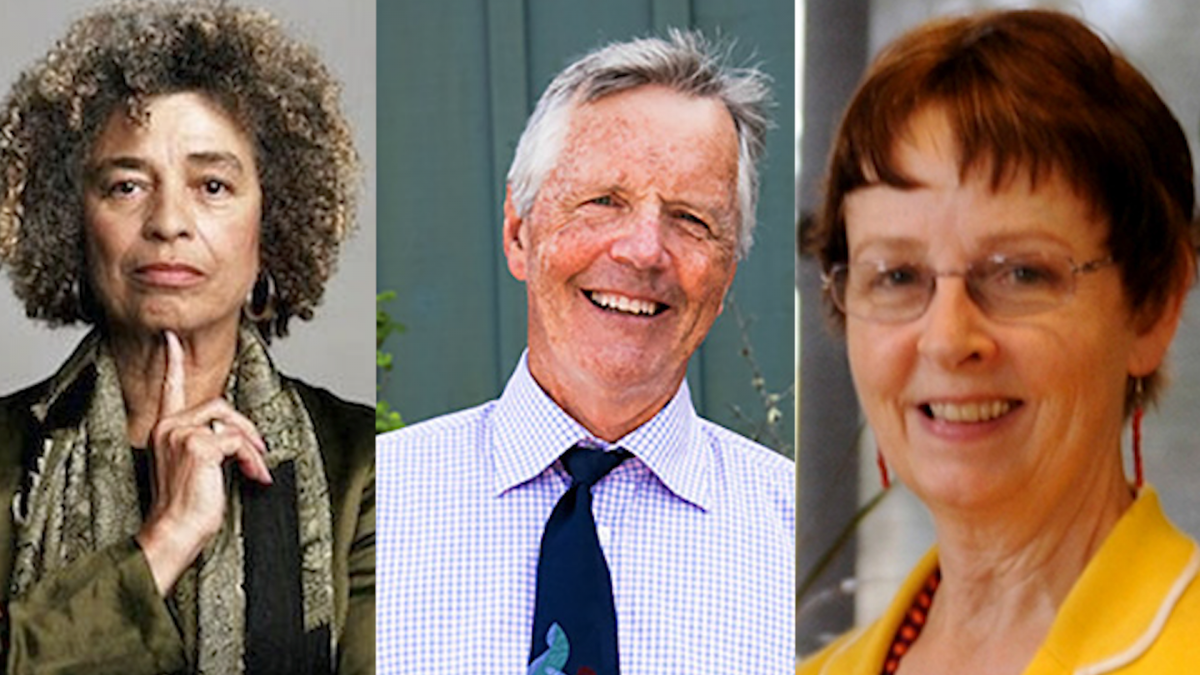Three UC Santa Cruz professors elected to American Academy of Arts and Sciences

SANTA CRUZ, Calif. (KION) UC Santa Cruz announced that three of its faculty members have been elected to the American Academy of Arts and Sciences, which describes itself as both an honorary society recognizing the excellence of its members and an independent research center.
The three faculty members are Angela Davis, professor emerita of history of consciousness and feminist studies; James Estes, professor emeritus of ecology and evolutionary biology, and Barbara Rogoff, professor of psychology. They are three of the 252 people in sciences, arts, humanities, business, public affairs and the nonprofit sector chosen as fellows and honorary members.
“We are honoring the excellence of these individuals, celebrating what they have achieved so far, and imagining what they will continue to accomplish,” said David Oxtoby, the President of the American Academy. “The past year has been replete with evidence of how things can get worse; this is an opportunity to illuminate the importance of art, ideas, knowledge, and leadership that can make a better world.”
Angela Davis
Davis spent 15 years as a faculty member at UC Santa Cruz before her retirement in 2008, but before that she was known for her political activism. The university said it began when she was young in Birmingham, Alabama, but her activism gained national attention in 1969 when she was removed from a teaching position at UCLA due to her activism and membership in the Communist Party.
In 1970, the university said she was placed on the FBI's Ten Most Wanted List on false charges and was driven underground. She spent sixteen months in jail, and the university describes her trials as one of the most famous in recent US history. She was acquitted in 1972.
She is also known for her work with prisoners' rights and was part of the campaign to free the Soledad Brothers, according to UCSC, and that involvement led to her arrest and imprisonment. She is also a founding member of Critical Resistance, a group working to dismantle the prison industrial complex.
Davis has authored 10 books and has lectured around the US, Europe, Africa, Asia, Australia and South America.
James Estes
Estes is known for his research on the role of sea otters in coastal ecosystems, according to UCSC, and his research in the Aleutian Islands showed that otters maintain kelp forest ecosystems by controlling the population of kelp-grazing sea urchins.
According to the university, Estes has led teams of scientists investigating how ecosystems have been affected by the decline of large predators and other animals at the top of the food chain.
He joined the UCSC faculty in 1978 and was elected to the National Academy of Sciences in 2014. He is a fellow of the California Academy of Sciences and has received the Western Society of Naturalists' Lifetime Achievement Award, a Pew Marine Conservation Fellowship, the C. Hart Merriam Award of the American Society of Mammalogists and the USGS Shoemaker Award for Distinguished Achievement in Communication.
Barbara Rogoff
Rogoff, who has been a part of the UCSC faculty since 1992, investigates cultural and community-based aspects of children's learning, according to the university, especially in communities where schooling is not prevalent. UCSC said she has found sophisticated collaboration among children from Indigenous communities in the Americas.
Her most recent book focuses on changes and continuities among children and families in a Guatemalan Mayan community through the life of a Mayan woman born to be a midwife. The book looks at the relation of people and communities across their histories.
Rogoff is a fellow of the National Academy of Education, American Anthropological Association, Association for Psychological Sciences, American Psychological Association and American Educational Research Association. The university said she received a Scribner Award from the American Educational Research Association for her book Apprenticeship in Thinking and co-authored the National Academy of Sciences book How People Learn. She received a Distinguished Lifetime Contributions Award from the Society for Research in Child Development.


